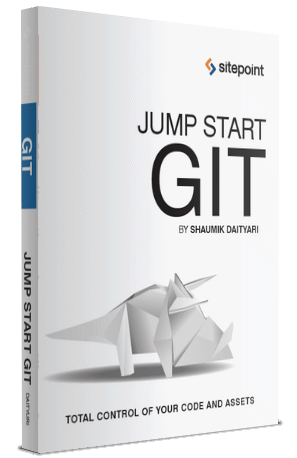India may be a developing country but there is one important thing about us Indians- we are smart. Not just in modern times, India has been contributing to the field of mathematics since time immemorial. The number zero ring a bell?
Everything in this world requires Math at some level. Be it just a cricket match, or managing your finances- you need basic Math.
.jpg) |
| Source: randoll1203.deviantart.com |
Math is a puzzle. It requires concentration, patience, time and devotion. Math demands your attention like no other subject as a kid. That makes a lot of people terrible at Math- hence the hatred. However, that might not just be the reason why so many people hate math.
There are hardly a few teachers who make it fun. I remember my Math teacher in the third standard, Mr Digvijay Tiwari, a fine gentleman, who would sing and teach us prime factorization, take a leap in the middle of the class to explain the concept of a leap year, or just give the names "milli", "centi" and "deci" to kids in the class to make us remember them! Not everyone could be like him. Perhaps that is another reason why people just hate Math!
How then, do we take the fear of Math out of the kids? The obvious way is to make it easier. The root cause of this hatred for Math is because it's not as easy as English or History. And how do we make it easy? One technique that is gaining widespread popularity is Vedic Mathematics.
Vedic Mathematics is a set of sixteen sutras or principles; tricks to perform arithmetic quickly. There's nothing great about it, nothing so intriguing- it's just a way of doing your calculations faster.
That being said, if you ask for the opinion of Mathematicians on Quora, they would unanimously tell you that Vedic Mathematics is neither Vedic nor Mathematics. It's not Vedic because as earlier claimed, there is no mention of these principles in the Vedas. Quoting an answer,
Although Vedic Mathematics can help you do certain things quickly, it has its limitations. Firstly, it's just a bunch of tricks. You can only remember a handful at a time. At times, you might end up thinking whether a situation follows the trick rather than applying the normal way. You must remember that Vedic Mathematics helps you in only certain situations- that too some very specific situations.
Many Indian mathematicians have come out publicly in criticizing the system of Vedic Mathematics. Take for example Dr S G Dani, who, in 1993, published a detailed report on the myths and reality of Vedic Mathematics and another by Dr S Parthasarathy on why he dislikes Vedic Math.
In the final analysis, I would certainly suggest that kids try and get hold of the concepts of Vedic Mathematics for their own benefit of performing mental calculations fast, but at the same time, I would not recommend this being a part of the school curriculum. Math is very tough, as I have mentioned above and I don't think there is a shortcut for you to excel in this subject. If you want to be able to excel in Math- you need to work hard. Talent is good to have but more often than not, sheer hard work outruns talent.
Vedic Mathematics is a set of sixteen sutras or principles; tricks to perform arithmetic quickly. There's nothing great about it, nothing so intriguing- it's just a way of doing your calculations faster.
That being said, if you ask for the opinion of Mathematicians on Quora, they would unanimously tell you that Vedic Mathematics is neither Vedic nor Mathematics. It's not Vedic because as earlier claimed, there is no mention of these principles in the Vedas. Quoting an answer,
Vedic mathematics, as I understand it, is not a type of math, but just a framework for doing mental math more quickly and efficiently. As such, I doubt professional mathematicians give it any thought at all, as they are not concerned with basic arithmetic.One thing is certain- Vedic Mathematics holds no significance for Mathematicians. They have surpassed the stage where your arithmetic calculations gain speed by performing little tricks.
Although Vedic Mathematics can help you do certain things quickly, it has its limitations. Firstly, it's just a bunch of tricks. You can only remember a handful at a time. At times, you might end up thinking whether a situation follows the trick rather than applying the normal way. You must remember that Vedic Mathematics helps you in only certain situations- that too some very specific situations.
Many Indian mathematicians have come out publicly in criticizing the system of Vedic Mathematics. Take for example Dr S G Dani, who, in 1993, published a detailed report on the myths and reality of Vedic Mathematics and another by Dr S Parthasarathy on why he dislikes Vedic Math.
In the final analysis, I would certainly suggest that kids try and get hold of the concepts of Vedic Mathematics for their own benefit of performing mental calculations fast, but at the same time, I would not recommend this being a part of the school curriculum. Math is very tough, as I have mentioned above and I don't think there is a shortcut for you to excel in this subject. If you want to be able to excel in Math- you need to work hard. Talent is good to have but more often than not, sheer hard work outruns talent.
Talent is cheaper than table salt. What separates the talented individual from the successful one is a lot of hard work. -Stephen King, author.
----------
(Link to video: http://www.youtube.com/watch?feature=player_embedded&v=4KmSPk6ha0E)
This is written for the IndiBlogger contest 'The Idea Caravan' sponsored by Franklin Templeton Investments partnered the TEDxGateway Mumbai in December 2012.



0 responses:
Post a Comment